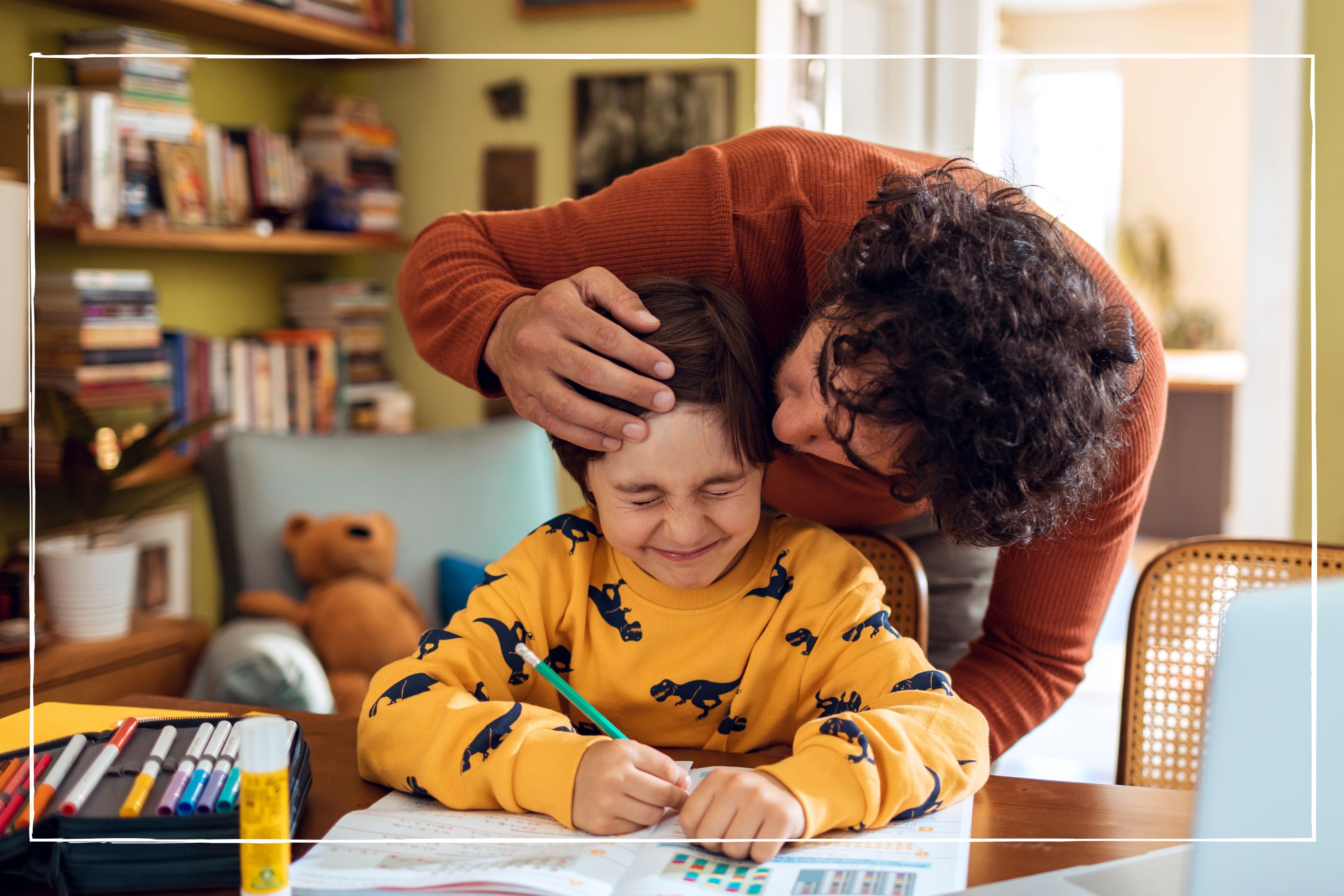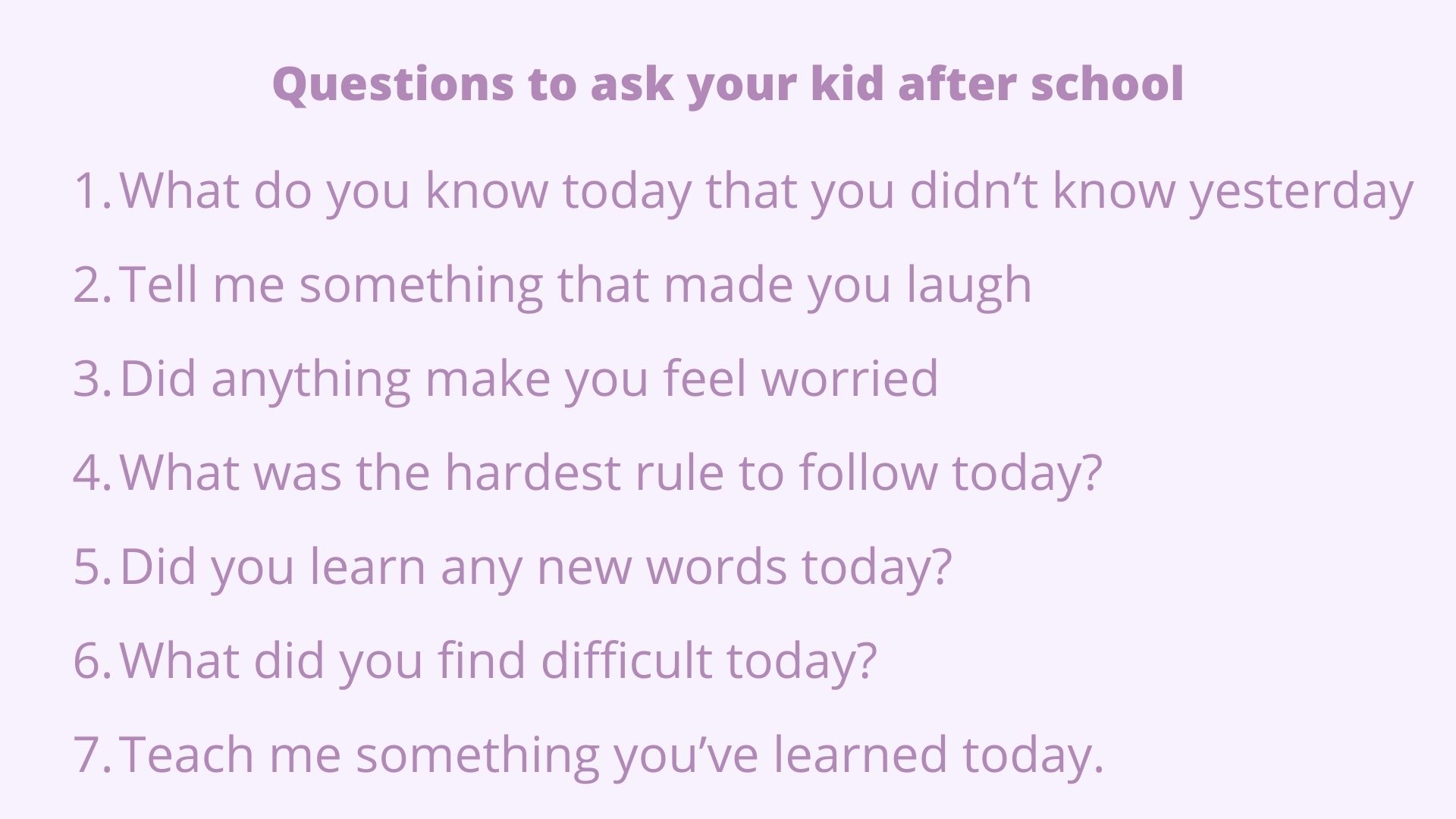Questions to ask kids after school: 14 of the best from the experts
Questions to ask kids after school can be tricky so we've asked the experts for you

Parenting advice, hot topics, best buys and family finance tips delivered straight to your inbox.
You are now subscribed
Your newsletter sign-up was successful
Questions to ask kids after school can vary hugely and there really is no right or wrong all families and all kids are different.
As parents, we just want to know, well, everything about our kids’ lives. And you’ll be surprised what you can learn when you get them talking about their day. And while funny dad jokes, riddles for kids, and mind-blowing fun facts are great ice-breakers they don’t give you what you need.
Throw a well-meaning ‘how was your day?’ or ‘what did you have for lunch?’ question as soon as they get in the car and it’s usually met with shrugs or ‘don’t knows’. It can be torturous, it’s sometimes easy to forget that our kids are still learning these social norms, and they won’t have an articulate answer because they’re still learning.
Parenting expert and former nanny, Kirsty Ketley, knows all too well; “I think that parents expect too much sometimes, even with teens. It can be frustrating when you feel like you don't know what is going on, but respect your child's space and instead create opportunities for them to come to you, and trust that they will come to you if they need to.”

School can be tough for kids, even if it's going well. There’s just so much going on, they’re hearing, seeing, and doing so many new things, and without you - their safe space. What they want to feel when they get home are warmth and safety and to know that you're happy they are back.
Before asking questions take some time to reconnect with your child. Offer them hugs or high fives and spend some time laughing with them. Do whatever works to help them feel safe at home.
Questions to ask kids after school
For primary school kids, the questions need to be more specific, Kirsty suggests; “asking who made sad choices at school/nursery today, this often gets them talking. As do questions like ‘what made you happy/sad today?’, or ‘What made you feel proud today?’.
Parenting advice, hot topics, best buys and family finance tips delivered straight to your inbox.
Early Years teacher and leader, Hayley Winter agrees, she says; “Asking closed questions such as ‘Did you go outside today?’ will leave you with a yes or no, you don’t get to find out more without asking more.. My preferred way is to ask open-ended questions like, ‘What made you feel happy today?’
Primary school kids
- What do you know today that you didn’t know yesterday
- Tell me something that made you laugh
- Did anything make you feel worried
- What was the hardest rule to follow today?
- Did you learn any new words today?
- What did you find difficult today?
- Teach me something you’ve learned today.
Secondary school kids
- What was the best/worst part of your day?
- When were you bored today?
- Tell me something that made you laugh today.
- If you had to do today over again, what would you do differently?
- What surprised you about today?
- Tell me two things you learned today that could save the world.
- Tell me about something weird that happened today.
When to ask my kid questions after school?
Sometimes it’s not down to the types of questions but more the timing. Turn it around, after a long day at work the last thing you want to come home to is a barrage of questions, and it’s the same after school.
Kirsty tells us; “Wait for them to spark conversation. Most kids find mealtimes a great time to download, bath time, and of course, bedtime. Oh yes, they just love to share a minute-by-minute account of their day, when you mention it's bedtime.”
The key is to stay calm and neutral and play it cool. After school, let your kid come in, put their bag down, get a snack, and take a breath. Then pose a few relaxed questions.
The other key is not to ask too many questions. Pick a few a day to concentrate on and mix it up.
How to ask my kid questions after school?
For best results, especially if your kid is not engaged in the questions is to avoid eye contact. Eye contact makes kids feel put on the spot, so they close up and don’t respond.
Try starting the conversation when your back is to them. For example, when you are loading the dishwasher and they’re sitting at the table eating. Driving in the car works wonders for this too. And, with teens some kids open up more readily over text messages for the same reason.
Mum-of-three, Dionne saves them to her phone so she can throw some about on car journeys. “I have them in my notes, I find my twins talk a lot more in the car when there are other things to look at while we talk. It’s less intense.”
The main gist is finding different ways to start a conversation with your kid. Avoiding eye contact is one way to make children feel more comfortable, especially if they are more introverted or are reluctant to share difficult feelings with you.
Related articles:
Video of the Week:
Stephanie has been a journalist since 2008, she is a true dynamo in the world of women's lifestyle and family content. From child development and psychology to delicious recipes, interior inspiration, and fun-packed kids' activities, she covers it all with flair. Whether it's the emotional journey of matrescence, the mental juggling act of being the default parent, or breaking the cycle of parenting patterns, Stephanie knows it inside out backed by her studies in child psychology. Stephanie lives in Kent with her husband and son, Ted. Just keeping on top of school emails/fundraisers/non-uniform days/packed lunches is her second full-time job.